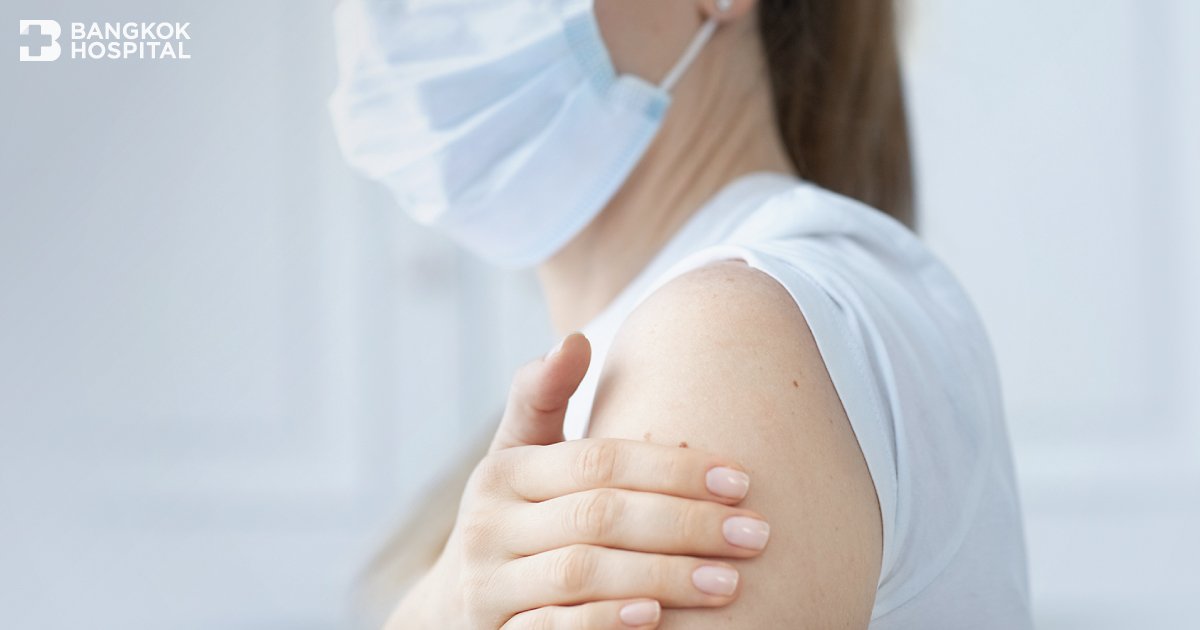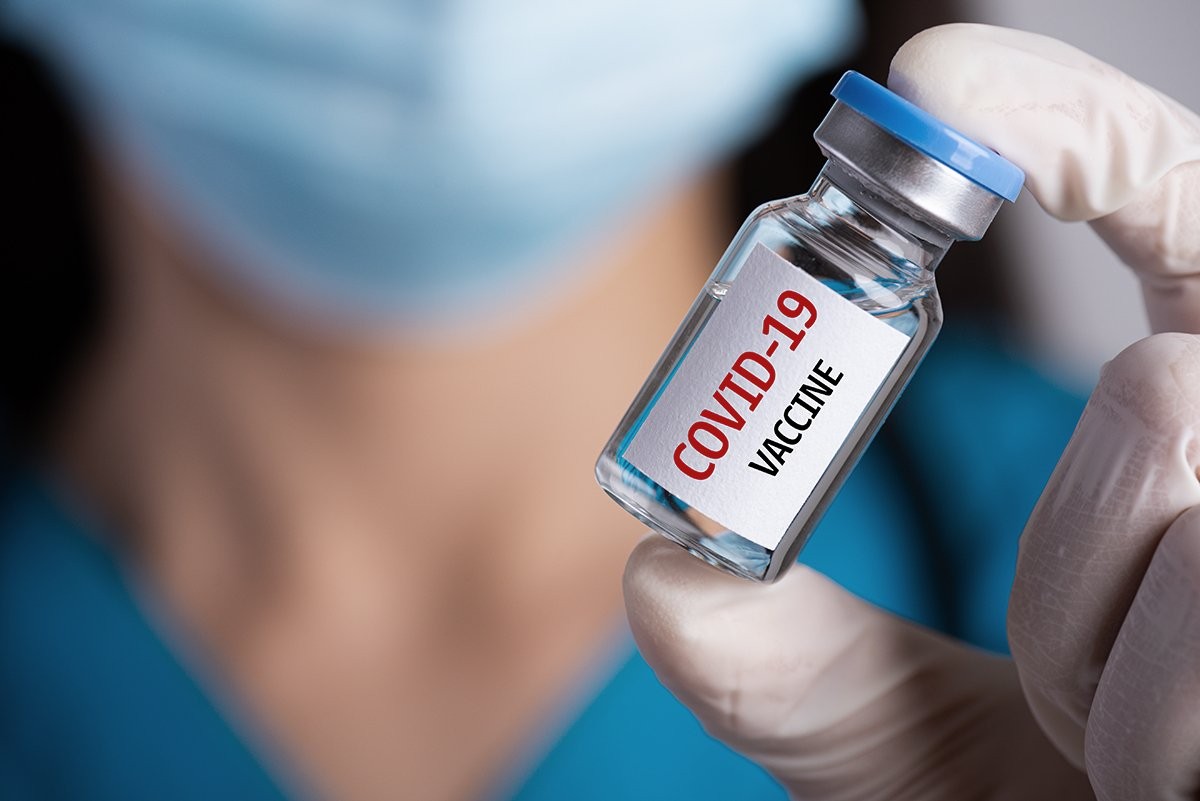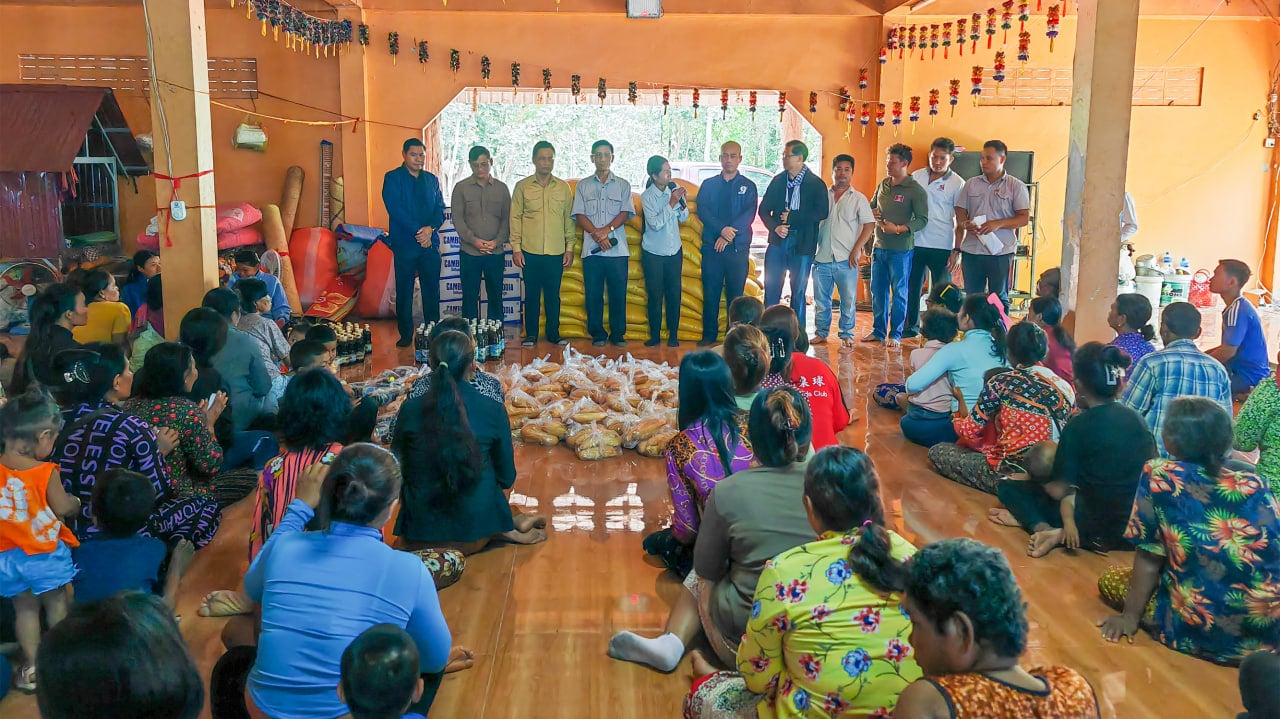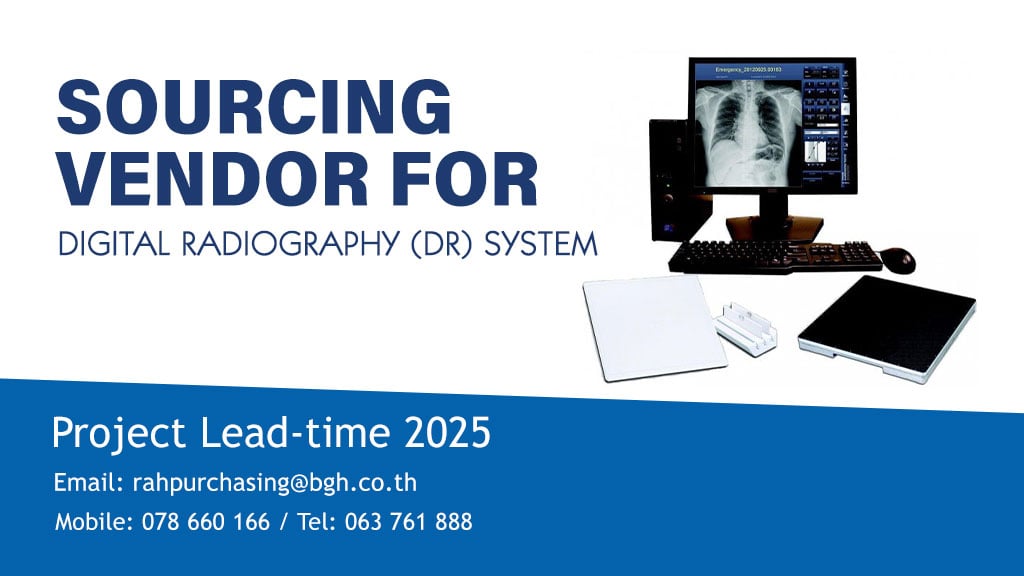Key Things To Know About COVID-19 Vaccines
| Please be informed that currently Bangkok Hospital cannot provide COVID-19 vaccination service. As soon as the vaccine is readily available, we will keep you updated. |
A number of medical studies have proved that COVID-19 vaccines are effective at preventing people from getting COVID-19. The vaccines do not only reduce the chance of infection, but they also help to mitigate disease severity in case a person becomes infected. Although vaccines appear to be acknowledged worldwide due to their efficacy, people who have been fully vaccinated against COVID-19 should still keep taking precautions and preventive measures in public areas, e.g. wearing a mask, maintaining social distancing, avoiding crowds and poorly ventilated spaces as well as frequent hand washing. To remain safe and healthy, it is essential to know and have a better understanding about important information related to COVID-19 vaccines prior to vaccination.
Coronavirus Disease (COVID-19)
COVID-19 is an infectious disease caused by a newly discovered coronavirus, SARS-CoV-2 which is a single-stranded RNA virus. Considered as global pandemic, COVID-19 is highly transmissible. The virus is thought to primarily spread person-to-person through respiratory droplets produced when an infected patient coughs or sneezes. COVID-19 can be transmitted via direct contact of saliva, nasal discharge and sputum. It could also spread if people touch an object or surface with virus present from an infected person and then touch their mouth, nose or eyes. Patients with COVID-19 have had a wide range of symptoms reported – extending from mild symptoms to severe illnesses, despite the fact that the majority of infected people are asymptomatic without disease manifestation. Mild to moderate symptoms often include malaise or muscle weakness, low-grade fever and sore throat. However, some patients might develop life-threatening complications such as severe lung infection which can potentially lead to death. Based on currently available information obtained from clinical studies, the elderly or patients who have certain underlying medical conditions, especially diabetes and cardiovascular diseases are at higher risk for severe illness from COVID-19. Compared with the general population, patients presenting with these comorbidities appear to be more vulnerable to becoming severely ill with the COVID-19. Owing to the fact that the incubation period of COVID-19 (the time between exposure to the virus and symptom onset) is on average 2-14 days, therefore, quarantine should be strictly in place for 14 days from the last exposure to a confirmed case.
COVID-19 Vaccines
When different microorganisms, such as bacteria or viruses, invade the body, they attack our immune system. This invasion eventually becomes an infection. The immune system uses several tools to fight off infection. Besides red blood cells, blood also contains white or immune cells used for defense against infection. These white cells consist primarily of macrophages, B-lymphocytes and T-lymphocytes. Macrophages are white blood cells that swallow up and digest these microorganisms as well as dying cells. The macrophages leave behind parts of the invading germs called “antigens”. The body identifies antigens as dangerous foreign substances and stimulates antibodies, produced by B-lymphocytes to attack them. T-lymphocytes, another type of defensive white blood cell, attack cells in the body that have already been infected. After the infection, the immune system remembers what it learned to protect the body against that disease when the body exposes to those particular germs again.
Vaccines help develop immunity by imitating an infection. This type of infection induced by vaccines, however, almost never causes illness. In fact, it activates the immune system to produce antibodies and T-lymphocytes. Once the imitation infection induced by vaccines goes away, the body is left with a supply of memory T-lymphocytes, as well as B-lymphocytes that will remember how to fight off the disease in the future.
COVID-19 vaccines greatly reduce the risk of SARS-CoV-2 infection by working with the body’s natural defenses to safely develop immunity to the disease. However, it typically takes some weeks for the body to produce immunity against COVID-19 after vaccination. Therefore, after vaccination it is crucial to follow all preventive measures, e.g. wearing a mask, frequent hand washing and keeping social distancing. More importantly, these vaccines do not entirely protect everyone from being infected with COVID-19. In fact, vaccines help to reduce disease severity and serious complications that might arise if a person becomes infected. Given latest information, it remains unknown how long the efficacy lasts after vaccination. In addition, conclusive information is recently insufficient to determine whether COVID-19 vaccines are efficient in immunocompromised patients or patients who take immunosuppressant drugs.
Types Of COVID-19 Vaccines
According to recent information provided by World Health Organization (WHO), vaccines become a critical new tool in the battle against COVID-19. A number of vaccines with different manufacturers have been continuously developed and launched. All of them intend to achieve the same purpose – immunity to the virus by stimulating an immune response to an antigen which is the spike glycoprotein protruding on the surface of the virus. The spike glycoprotein plays an essential role in virus attachment, fusion and entry into the human cell. This spike glycoprotein specifically binds with host cell receptors in the respiratory tract or digestive tract. After entering the human’s body, viruses start invading and causing disease afterwards.
Recently, there are four categories of COVID-19 vaccines available. Their differences lie in whether they use a whole virus; just the parts of the germ that triggers the immune system; or just the genetic material that provides the instructions for making specific proteins. Four types of COVID-19 vaccines are as follows:
- Messenger RNA (mRNA) vaccine: COVID-19 mRNA vaccine gives instructions for our cells to make a harmless piece of viral spike glycoprotein. Once this genetic material gets into human cells, it uses our cells’ protein factories to produce the antigen that subsequently triggers an immune response to fight against the disease.
- Viral vector vaccine: Viral vector vaccine uses a modified version of a different virus, called the vector, to deliver important instructions to our cells. For COVID-19 viral vector vaccine, the vector (harmless virus) inserted with genetic material of SARS-CoV-2 enters a cell in our body and then uses the cell’s machinery to produce a harmless piece of the virus –a spike glycoprotein that causes COVID-19. Later on, our immune system recognizes it as a foreign substance which triggers our immune system to begin producing antibodies and activating other immune cells to fight off the disease.
- Inactivated virus vaccine: Inactivated virus vaccine uses SARS-CoV-2 viruses whose genetic materials have been destroyed either by chemicals, radiation or heat. Thus they cannot replicate, but can still trigger an immune response to build up antibodies to fight against the disease.
Protein subunit vaccine: Protein subunit vaccine uses only fragments of specific protein of SARS-CoV-2 virus to trigger an immune response. By doing so, it boosts up immunity to fight off COVID-19 without causing any harm to the body.
Who Should Get COVID-19 Vaccine?
Even though COVID-19 vaccines are recommended in general population, there seems to be a shortage of vaccine supply while clinical data indicating vaccine safety and efficacy has been only derived from certain groups of population. In Thailand, therefore, Department of Disease Control has recommended that the COVID-19 vaccines should be primarily offered to:
- Health care personnel, both government and private sectors
- Patients with underlying diseases, such as respiratory disease and cardiovascular disease
- People aged over 60 (according current information on 3 March, 2021, only certain types of COVID-19 vaccines can be given to this group).
- Frontline immigration officers and essential workers, such as soldiers, policemen and volunteers in social work.
Given recent information relating to special population groups, vaccination in people aged lower than 18, pregnant or breastfeeding women remains indecisive with limited clinical studies. The specialist might consider prescribing COVID-19 vaccines if benefits outweigh the possible risks.
COVID-19 Vaccines In Thailand
As of 2 March 2021, COVID-19 vaccines available in Thailand include:
- AstraZeneca vaccine: AstraZeneca vaccine is a viral vector vaccine that is proved in people aged over 18. AstraZeneca vaccination course consists of two separate doses of 0.5 ml each. The second dose should be administered 4-12 weeks apart from the first dose. It is for intramuscular (IM) injection only, preferably in the deltoid muscle.
- CoronaVac or SinoVac vaccine: CoronaVac or SinoVac vaccine is an inactivated vaccine recommended in people aged between 18-59. Similar to AstraZeneca vaccine, Sinovac vaccination course consists of two separate doses of 0.5 ml each. The second dose should be administered 2-4 weeks apart from the first dose. Route of administration is intramuscular (IM) injection only, preferably in the deltoid muscle. For those who live in high-risk zones, a two-week interval is advised since it proves the stronger antibody response in clinical trials
- Johnson and Johnson vaccine: Johnson and Johnson vaccine uses a shell of a virus to carry genetic material, DNA of SARS-CoV-2 virus into human cells, allowing for immunity against the virus. The shell has been modified so it can no longer replicate and cause disease. Unlike AtraZenaca and SinoVac vaccines, Johnson and Johnson vaccine is administered as a single dose via intramuscular route in the deltoid muscle.
To reach the maximum efficacy against COVID-19, it is essential to complete the course. However, interchangeability of COVID-19 vaccine products (mixing vaccines using different types and manufacturers) for the first and second doses has not been yet advised since no confirmative evidence can be recently obtained from clinical trials, although combined regimen may provide more protection and flexibility whenever production of a vaccine falters, as often happens. Moreover, after completing a two-dose course of vaccination, it is undefined whether an additional dose is required with unknown regimen and interval.
Possible Side Effects Of COVID-19 Vaccines
Undesired reactions caused by COVID-19 vaccines widely vary among individuals. Some might experience only mild side effects or even none while some might develop life-threatening reactions. Possible side effects after getting COVID-19 vaccines include:
- Common side effects:g. pain, redness, itch or swelling at the injection site, weakness, fatigue or discomfort, mild headache, low-grade fever, nausea and vomiting, muscle and joint pain.
- Rare or unusual side effects: high-grade fever, lump or bump at the injection site, dizziness, drowsiness, palpitation, abdominal pain, decreased appetite, excessive sweating, enlarged lymph node and flu-like symptoms, such as sore throat, runny nose and cough.
Contraindications To COVID-19 Vaccine
- Allergic reaction of any severity or known (diagnosed) allergy to a component of any vaccine.
- Severe allergic reaction, e.g. anaphylaxis, shortness of breath, swelling face or tongue and airway obstruction after a previous dose or to a component of the COVID-19 vaccine.
Precautions
Important information that needs to be informed physician and medical personnel prior to vaccination includes:
- Allergic history of vaccines, foods and other allergens.
- Body temperature greater than 38’c on the vaccination day.
- The presence of bruise, unusual bleeding or the use of anticoagulant drug such as warfarin.
- Immune suppression, such as being immunocompromised host, using high-dose or long-term corticosteroid drugs or receiving chemotherapy or other immunosuppressive agents.
- All side effects that arose after the first dose of vaccination
- Being pregnant or breastfeeding or planning for pregnancy
In case that mild signs or symptoms present before vaccination, the physician might consider prescribing vaccine without delays if benefits are distinctly seen. Nonetheless, vaccination must be suspended if severe conditions persist based primarily upon individual’s health status and underlying problems.
Post Vaccination Instructions
After vaccination, a 30-minute observation at vaccination clinic or hospital is compulsorily required in order to monitor possible side effects caused by COVID-19 vaccines. If any sign or symptom exhibits, it must be immediately informed to physician, pharmacist and nurse. Appropriate medical treatment used to manage immediate allergic reactions must be readily available in the event an acute anaphylactic reaction occurs following administration of COVID-19 vaccine. Nevertheless, some people might develop other unwanted reactions which have not been reported in previous clinical trials. In case that mild side effects present, such as low-grade fever and mild headache, over-the-counter drugs, e.g. paracetamol can be taken to subside these effects. However, if serious symptoms manifest, e.g. high-grade fever, chills and severe headache, immediate medical attention must be sought. For safety purpose, it is important to keep vaccination booklet or record for vaccine tracking.
Besides healthcare crisis induced by COVID-19 pandemic started in the end of 2019, the economic and social disruption caused by this pandemic is enormously devastating. COVID-19 vaccines as a novel weapon to battle against COVID-19 are considered “a game changer” for preventing people across the world from the disease while reducing disease severity and confining virus spreading.
The COVID-19 pandemic has urgently prompted scientists from around the world to design anti-SARS-CoV-2 vaccines. The availability of advanced science data has allowed creating different types of vaccine based on innovative platforms and directed towards well defined sensible targets. Nevertheless, the development of these vaccines in a very short time necessarily implies that is not yet possible to anticipate their long-term efficacy and possible side effects as well as the use in special population. Therefore, the future trend of clinical studies should involve medicines used to treat COVID-19 and vaccines that can fully protect all variants of SARS-CoV-2 virus.








